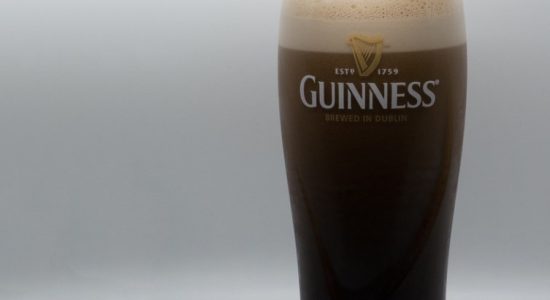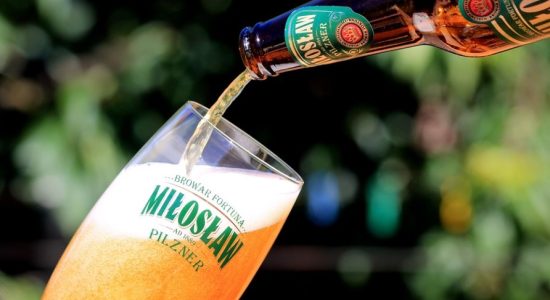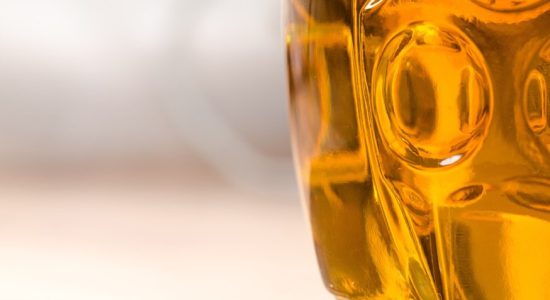What is a Pilsner? And How is a Pilsner Made?
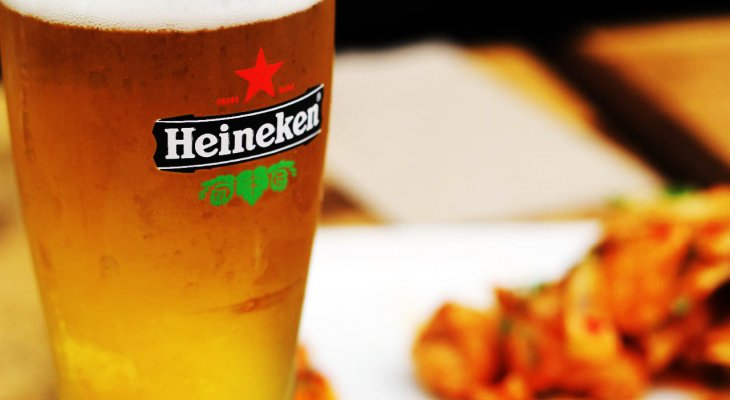
I wanna bet that all of you reading this have once tried a pilsner in your life. This post will take you through the magical world of pilsners. You might even learn a thing or two about this style of pale ale.
What is a Pilsner? Pilsner is a pale lager originally from Plzen, Czech Republic, formerly known as Bohemia. The beer was invented by Bavarian brewer Josef Groll. The Pilsner usually contains around 4,5%-5% Alcohol by Volume.
If you are more curious to learn more about Pilsner, please don’t stop reading!
Read Also: What Is The Easiest Type Of Beer To Brew?
What is a Pilsner?
It all began in 1838, where all the beer consumers of the city Plzen dumped whole barrels of beer into the streets solely by dissatisfaction of the standard of the beer. A year later in 1839, the city founded its first city-owned brewery called M?š?anský pivovar Plze?, which was to brew beer in the style of Bavarian.
The brewery recruited the Bavarian brewer Josef Groll, who used new techniques and paler malts. He presented his first batch of pale lager on 5 october 1842. This was the first pilsner ever made, and since to this day, Pilsner Urquell still uses the same recipe with double casking, so they always can keep an eye on the quality of the beer.
The beer was made using Plzens soft water and the local Saaz noble hops and that created a clear, golden beer. Due to lowered glass prices made it possible for the general population to purchase drinking glass.
Lager
A pilsner is a pale lager. A lager is conditioned at lower temperatures, and is the most widely consumed and commercially available style of beer. They can range in color from extremely pale, as with pilsner, through amber colored beers such as Bocks and Viennas, to nearly complete dark with dunkels. The depth of color comes from the different types of grain used in the beers. Pilsner uses unroasted barley, and may even add corn or rice to lighten the color even more. Lagers are known to be “crisp” in flavor.
Want to know more about other lager types? Read all about it here: How Many Types Of Lager Are There?
What makes Pilsner taste so good?
Since we’re dealing with Pilsners, we should look how the original, inventors of the beer style are creating their beer. Lets go further into what makes pilsner so great?
Soft water
Whenever you hear people talk about Czech pilsner, or Pilsner Urquell for that sake, people will often say that the magic derives from the water surrounding the city of Plzen. The term soft water comes from the missing of dissolved minerals in the water in and around of Plzen. Basically the magic does its magic to the wort and the yeast works very well with this water.
Saaz hops
Officially registered in 1952, the Saaz hops has established itself as a staple variety for brewers and dates back more than 700 years.
Saaz is one of the four original noble hops and has a distinctive and classic aroma. It is best known for being the hop used in Pilsner Urquell, and countless Pilsners. Its herbal characters stems from a high level of farnesene.
The Saaz hop is inarguably an aroma hop, but when used as an early addition to your brew, it is said to create a delicate bitterness
Fermentation
If you want to learn more about how the lager fermentation process is you should definitely check out our blog post: Lager Fermentation Timeline | Learn How To Correctly Ferment Lager
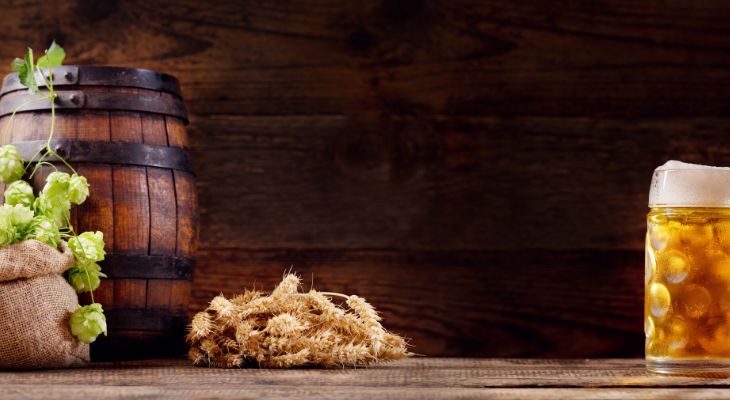
How is a Pilsner Made?
This is probably the most feared beer to brew at home since it requires a lot of steps and different temperatures. You really need to be awake! Get ready to cold ferment, and your house starts to smell like rotten eggs! (Woohoo)
Everyone has kind of their own way of to home brew pilsner, but this is a recipe i strongly recommend. If you want to try out your own home brewing check out: What Is The Best Home Brewing Kit For Beginners?
Czech Pilsner
- 19 L, extract
- Original gravity = 1,056
- Final gravity = 1.016
- IBU = 40
- SRM = 4
- ABV = 5.3%
Ingredients
- 3.6 kg liquid malt extract
- 4.83 AAU Saaz hops (39 g at 3.5% alpha acid) 60 min
- 5.8 AAU Saaz hops (47 g at 3.5% alpha acid) 30 min
- 2.9 AAU Saaz hops (24 g at 3.5% alpha acid) 10 min
- 2.9 AAU Saaz hops (24 g at 3.5% alpha acid) 0 min
- White Labs WLP800 (Pilsner yeast), Wyeast 2001
Step-by-Step
Mill the grains and dough-in targeting a mash of around 1.5 quarts of water to 1 pound of grain and a temperature of 68 °C
Tip: When making pilsner, always have a liquor-to-grist ratio of 3:1 by weight
Step 1. Hold the mash at 68 °C until enzymatic conversion is complete. Infuse the mash with near boiling water while stirring, or if you are fancy, using a recirculating mash system raise the temperature to mash out at 76 °C.
Step 2. Sparge slowly with 77 °C water, collecting the wort just until the pre-boil kettle volume is 25L and gravity is 1.044
The total wort boil time is 90 minutes, which helps to reduce the S-methyl methionine present in the Pilsner malt and results in less dimethyl sulfide in the finished product.
Step 3. With 60 minutes remaining in the boil, add the first batch of hops. The other hop additions should be added at timestamps: 30, 10 and 0 minutes left in the boil.
Step 4. Chill the wort to 10 °C and start aerating thoroughly. The pitch rate is 20 g of properly rehydrated dry yeast, four packages of liquid yeast, or just one if you are using a 9L starter.
Step 5. Now you need to ferment the beer around 10 °C until you can see through the beer, or the yeast drops clear. If you have healthy yeast, the fermentation process should be complete in a couple of weeks – but DON’T rush it. Lagers and other cold fermented beers just take longer to ferment than ales or lager fermented at high temperatures. If you really want to, you can perform a diacetyl rest during the last days of fermentation.
Step 6. Rack the finished beer to a keg and start force carbonating, or rack to a bottling bucket, add priming sugar and bottle. You need to target a carbonation level of 2 to 2.5 volumes.
A month or more of very cold fermentation at near freezing temperatures will mellow some of the flavors and immensely improve your beer.
Step 7. Serve it to friends and family at 6-8 °C. They won’t be dissatisfied.
If you master the art of home brewing pilsner, i would go as far and say that you can brew every type of beer. If you are more interested in how long it takes to brew lagers read more here: How Long Does It Take To Brew A Lager?
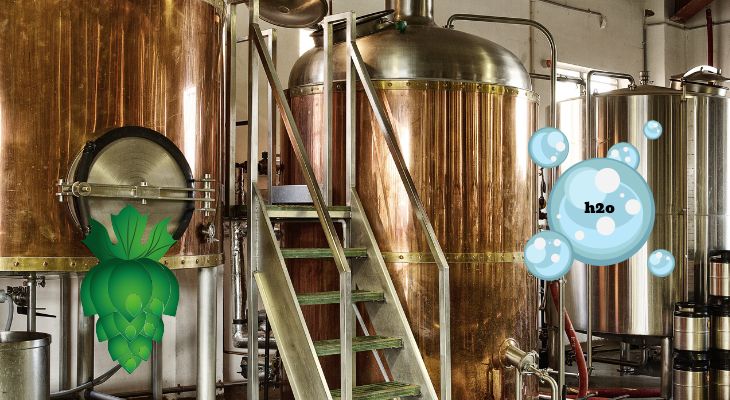
What is The Best Pilsner?
There is tons and tons of different pilsner brands, and it can be quite difficult to navigate and choose a favorite Pilsner – They are all quite amazing right? Therefore i have made a list of my favourite Pilsner. Maybe it will help you decide?
This list is my own opinion, and yours might differ. Let’s start with number 1!
- Carlsberg Pilsner
Carlsberg put it very delicately “You will experience a harmonious balance between bitterness and sweet apples while enjoying the bright golden color with the beautiful foam and scent of pine, straw, hazelnut and wood sorrel”. Yes, it’s almost like a spring day in Denmark. Hopefully I don’t sound to biased quoting Carlsberg themselves. - Camden Pilsner
Camden Pilsner is a outstanding refreshing beer. A sweet, but clean maltiness is complemented by a lovely piney, herbal hop profile. It has an almost cream-like mouthfeel that is contrasted by a slight bitterness that finishes into a tedious finish. The freshness of this beer is immense – Just like the smell after rain has fallen. - Pilsner Urquell
The mother of the pilsner style. The beer that revolutionized the way we think of lagers. A note of freshly cut grass together with a floral hop aroma. Toasty, biscuity bitterness, which is balanced by the ever-so-slightly spicy, noble Saaz hop. This beer soothes your senses. Promise me, that if you ever visit Czech Republic – Do yourself a favor, and see, feel and drink this beer. - Beck’s Pilsner
Ah, a German pilsner. Beck’s Pilsner is a beer where hops and malts are spot on. Strong aromas of wet grass, flowers and skunk takes me back to the football fields. The flavor profile follows suit, with a tiny bit of roasted bread – The beer finishes nicely with a touch of black pepper and yeast that makes it crisp and somewhat dry. Make sure when you buy this beer, that it has been produced in Germany, and not USA. There is substantial differences. - Moritz Pilsner
Barcelona sunshine in a bottle. This pilsner is clean and pale with a hint of sweet malt and delicate citrus hops – Takes me right back to the busy streets and Antoni Gaudis very own Barcelona. This pilsner is made with the noble hop Saaz – I think there might be a correlation here - Samuel Adams Pilsner
This unique pilsner have been brewed with all of the noble hops from the world’s oldest growing regions for a distinct, yet complex hops character. The floral, citrusy aroma and flavors that comes from the noble hops are nicely balanced by the honey-like malt notes into a crisp, fresh taste. - Birra Moretti Pilsner
This Italien, yes. Italian beer has a beautiful golden colour with a tiny bit a white head. The aroma is light, floral, malty with a slight note of fruits. The taste of the beer very subtle. A little bit of hop and bitter, but sometimes all you need after strolling a whole day in Rome is a amazing refreshing beer. This definitely takes me back to the small café in the alley just beside the hotel. - Heineken
“Have you ever tried a lager before? – Oh, Heineken. Of course” That is the usual answer when asking people whether they’ve tried lager before. Everyone knows what it is. Pale yellow with plenty of clarity and a white head that dissipates quickly. Smells like malted hops, that turns into a slight skunky, acidic smell. The flavor is somewhat super-inoffensive with a strong, bitter taste. Simply a good beer for whatever thing you need to do.
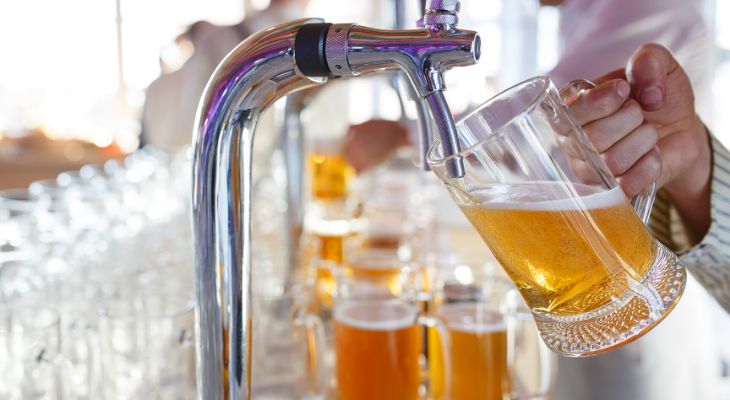
Different styles of Pilsners
The pilsner might be the most popular beer style in modern history. The lightly colored, amazingly balanced lager remains one of the most loved beers to enjoy, whilst being one of the most challenging for the brewer and home brewer to create. The world over, pilsner has become the standard beer for many reason, and many brewers and home brewers have worked hard to put their own uniqueness to this classic beer.
The pilsner is usually said to have 3-4 different styles where each style has their own spin to the original pilsner.
German-style Pilsner
A classic german pilsner is pale in color with a malty sweetness to it. Hop bitterness is medium to high. The use of Noble-type hop shows nicely in the aroma and flavor. There is differences from the Czech pilsner – This style is lighter in color and body, and has lower hop bitterness.
Czech-style Pilsner
The original pilsner. Originated in 1842 in the former Czech Republic known then as Bohemia. The Czech, or Bohemian style pilsner has a slightly sweet and malt character with a toasted, cracker-like malt character to it. Bitterness in medium, and the noble-type hop aroma and flavor isn’t as forward as they would be in german-style pilsners. The color of the bohemian is a bit darker, but still light and “crisp”, as we beer enthusiasts would say.
American-style Pilsner
Sometimes you even wonder why you would call this style of beer pilsner, since it isn’t allowed to be marketed as one in Europe, but the American pilsner has its roots in the 1800s. German immigrants brought the traditional pilsner brewing styles to America. The giant brewing conglomerate Anheuser-Busch were one of the first to start brewing this style in America. The American style of pilsners has the usage of corn or rice in the grist, and they’re known to be significantly less flavorful, hoppy and bitter than the traditional European pilsners. If my non-professional opinion matters – Stick to the original!



